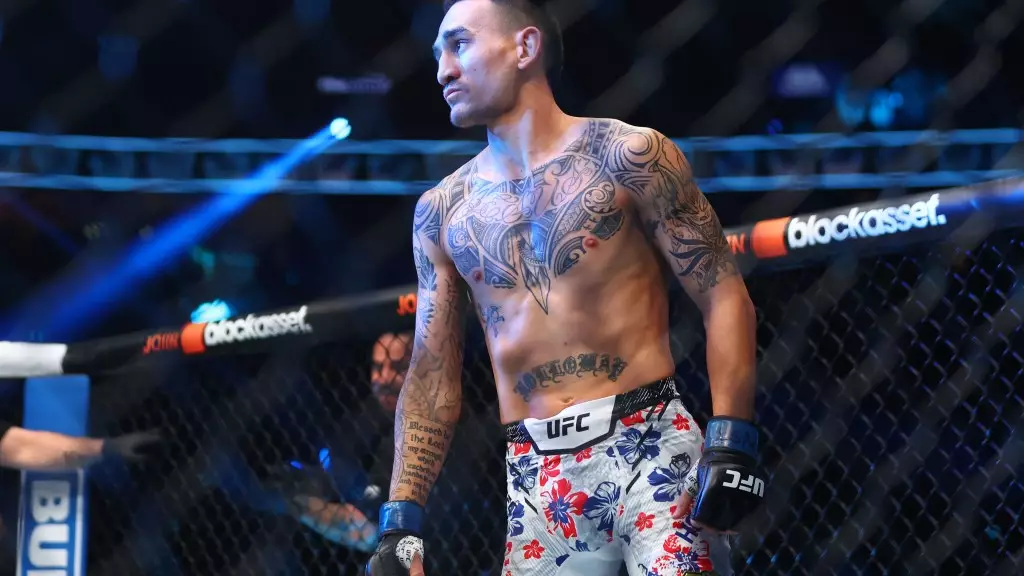Max Holloway, a perennial contender in the UFC featherweight division, has recently announced his transition back to lightweight following a significant setback against Ilia Topuria at UFC 308. This marks a crucial turning point in Holloway’s illustrious career as he looks to redefine his position within a more competitive weight class. Former champion Daniel Cormier has weighed in on the situation, advocating for a more measured approach to Holloway’s re-entry into the lightweight division.
Cormier’s concerns stem from the harsh reality that stepping back into the lightweight division after a heavy defeat could lead to a precipitous decline in Holloway’s career. Cormier points out the risks associated with immediately facing elite opponents, such as Dustin Poirier—who already holds a 2-0 advantage in the series against Holloway. Cormier expresses a desire to see Holloway gradually acclimate to the new challenges that lightweight brings, suggesting instead that he should initially face younger, less experienced fighters in the division before re-engaging with top-tier opponents.
This sentiment is particularly relevant given the physical and mental toll that high-stakes matchups can exact on a fighter. After his knockout loss to Topuria, a more conservative approach might allow Holloway to regain his confidence, adapt to the division, and avoid the kind of ferocious competition that could further damage his legacy.
Cormier proposed the idea of Holloway facing less established fighters such as Rafael Fiziev, Benoit Saint Denis, or Paddy Pimblett. These matchups would not only provide Holloway with the opportunity to harness his skills in a less daunting environment but would also enable him to build momentum within the division. Such strategies could prevent Holloway from becoming another high-profile casualty of the lightweight battleground before he has fully recalibrated.
The suggestion to avoid immediately tangling with the likes of Poirier or Justin Gaethje opens up a broader discussion about how fighters can manage their career trajectories. A fight with a capable but not elite opponent might foster growth and resilience, which can be invaluable for someone aiming to return to championship contention.
Holloway’s previous foray into lightweight, which resulted in a decisive loss against Poirier in April 2019, serves as a cautionary tale about the difficulties of transitioning between weight classes. The fact that he stepped back into the fray and secured a stunning last-second knockout victory over Gaethje at UFC 300 had initially reignited hopes for the former champion. Yet the reality of facing a fierce contender like Topuria only underscores the volatility of the sport.
Ultimately, Cormier’s insights highlight the importance of not just physical readiness but also mental fortitude when considering a return to competitive fighting. As Holloway contemplates his next steps, the guidance to take a slower, more strategic approach may just be the key to revitalizing his career and returning to the upper echelons of the lightweight division. A careful, methodical ascent can ensure Holloway not only survives but thrives, potentially leading to a third encounter with Poirier or a chance to reclaim more prestigious titles in the future.

